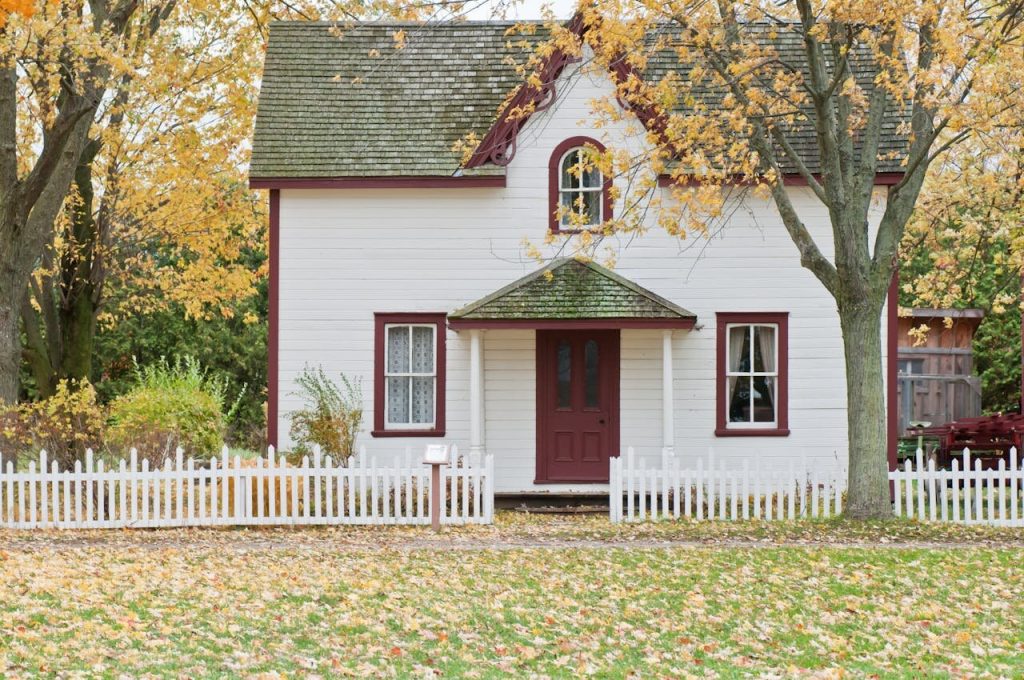Understanding the Probate Process in San Francisco
Understanding the probate process in San Francisco is essential when you're dealing with an inherited property. Probate is the legal procedure used to settle a deceased person’s estate, ensuring that assets are distributed correctly and debts are paid.
Key Steps in the San Francisco Probate Process:
- Filing the Will: The process begins by presenting the deceased's will to a probate court.
- Court Appointments: The court appoints an executor to manage the estate.
- Asset Appraisal: All assets, including property, are appraised to determine their value.
- Debt Settlement: Debts and taxes are paid off, which might affect the estate's value.
Local Insight: In San Francisco, the probate process can range from a few months to over a year, depending on the complexity of the estate. During this time, selling the inherited property can be more complex, as the legal title isn't clear until probate concludes. It's important to work closely with a local probate attorney to navigate this process efficiently.
Preparing an Inherited House for Sale
Preparing an inherited house for sale is crucial for attracting potential buyers and involves several key steps:
- Initial Assessments and Inspections: Conduct a professional inspection to identify and address any hidden issues, like plumbing or electrical problems.
- Repairs and Renovations: Make necessary repairs and consider updates, such as a kitchen remodel or roof repair, to boost the home's market value.
- Home Staging: Enhance the home's appeal by staging it effectively, using furniture arrangement and decor to create a welcoming atmosphere.
- Cleaning and Decluttering: A thorough cleaning and decluttering can make the space more inviting, helping buyers envision themselves in the home.
Expert Tip: In San Francisco's competitive market, minor renovations can significantly increase the property's value. Consider consulting with a local real estate agent who can recommend high-impact improvements that appeal to Bay Area buyers.
Estate Sale vs. Traditional Sale
Deciding between an estate sale and a traditional sale for an inherited property involves weighing their distinct advantages and challenges:
- Estate Sale: This quick method involves selling the property and all its contents, typically managed by professionals.
- Pros: Fast liquidation and minimal market exposure.
- Cons: Often results in lower returns and lacks privacy.
- Traditional Sale: This involves listing the property on the market, usually without contents, and can take longer.
- Pros: Higher potential returns and more buyer control.
- Cons: Time-consuming and may incur additional costs.
In San Francisco, where the real estate market is highly competitive, a traditional sale might yield higher returns, especially if the property is in a desirable neighborhood. However, if you need to sell quickly, an estate sale could be a viable option.
Navigating Inherited Property Taxes in San Francisco
Understanding property taxes for an inherited home in San Francisco is crucial due to the city's dynamic real estate market. When a property is inherited, it's reassessed at the current market value, which could lead to higher annual taxes. However, this reset in tax basis can significantly reduce potential capital gains taxes should you decide to sell the property later.
Example: If you inherit a home in a rapidly appreciating neighborhood like Pacific Heights, your property taxes might increase due to the reassessment. However, if you sell the property, the capital gains tax will be calculated based on the stepped-up basis, potentially reducing your tax liability.
Expert Advice: Consult a local tax advisor to understand the specific tax implications of your inherited property and explore strategies to minimize your tax burden.
Selling a Home with Mortgage Debt
Selling a home with mortgage debt in San Francisco requires careful planning, especially when dealing with an inherited property. First, it's essential to determine the remaining balance on the mortgage and consider your options:
- Pay Off the Debt: If financial resources allow, paying off the debt ensures a clear title for the sale.
- Negotiate with the Lender: Consider negotiating a settlement or an assumption arrangement by the buyer.
Example: Inheriting a home with a substantial mortgage in a high-value area like Nob Hill might complicate the sale. Understanding these financial and legal intricacies can streamline the sale and prevent surprises, making the transition smoother for everyone involved.
Capital Gains Tax on Inherited Property
Understanding capital gains tax on an inherited property is crucial to managing your financial obligations. This tax applies to the profit from selling the property, calculated as the difference between the sale price and the property's value at the time of the original owner's death, known as the "stepped-up basis."
Tips to Minimize Your Tax Liability:
- Calculate Your Gain: Subtract the stepped-up basis from the selling price to find your taxable gain.
- Utilize Exemptions: Investigate any homeowner exemptions that may apply, like those for using the property as your primary residence.
- Consider the Sale Timing: Holding the property longer can sometimes influence the tax consequences, depending on market trends and tax regulations.
Local Example: If you sell an inherited home in the Mission District for $1 million, and it was valued at $850,000 when you inherited it, you'd be taxed on the $150,000 gain, not the total sale price. This understanding is key to effectively planning your post-sale finances.

Considering Cash Offers for Inherited Homes in San Francisco
Considering cash offers for inherited homes in San Francisco offers a straightforward and often quicker path to selling your property, especially valuable during emotionally charged times.
Benefits of Accepting a Cash Offer
- Faster Closing and Fewer Complications: Avoids the delays of mortgage processing.
- No Need for Repairs or Staging: Sells the property "as-is," eliminating repair and staging costs.
- Reliable Offers: Firms like John Buys Bay Area Homes are known for their prompt and fair offers, simplifying your decision-making process. Their reputation for reliability means you can expect a straightforward transaction without unexpected delays or renegotiations, helping you move forward confidently and efficiently.
How to Evaluate Cash Offers
Evaluate cash offers by comparing the net proceeds after all fees and closely assessing the buyer's credibility. Companies like John Buys Bay Area Homes, known for reliability, can offer peace of mind.
Typical Process and Timeline for Cash Sales
The cash sale process is typically swift, involving a basic inspection, document signing, and a closing period that can be completed within a few weeks, demanding fewer documents than traditional sales.
For example, when Mark inherited a duplex in San Francisco, he chose a cash offer from a reputable buyer, speeding up the sale and alleviating the burden of property management during a difficult time. This quick resolution highlights the practical benefits of cash offers in managing estate affairs efficiently.
Additional Tips for Selling an Inherited House
When selling an inherited house, it's crucial to address both legal and financial details, such as outstanding debts and compliance with estate laws, to avoid potential complications. Clear communication with all heirs is essential to prevent delays and ensure everyone is aligned on decisions.
Local Market Insight: Danielle Hale, Chief Economist at Realtor.com, notes that the increase in San Francisco's housing inventory in 2024 could influence both the timing and pricing of your sale. Staying informed about these trends will help you navigate the market more effectively, ensuring a smoother transaction.
Conclusion
Selling an inherited house in San Francisco involves key steps like navigating probate, managing mortgage debt, and evaluating cash offers while staying informed about market trends. Each of these aspects is crucial to a successful sale. Given the complexities, seeking professional advice can help make the process smoother and less stressful, ensuring the best possible outcome.
FAQs about How to Sell an Inherited House in San Francisco
How much time does the probate process take in San Francisco?
The duration of the probate process in San Francisco can vary widely, typically ranging from several months to a year. This timeframe depends on the estate's complexity, any disputes among heirs, and the efficiency of the probate court.
What are the property tax implications for an inherited home in San Francisco?
When you inherit a home in San Francisco, the property is reassessed at its current market value, which often leads to higher property taxes. It's important to factor in these potential increased costs when planning to keep or sell an inherited property.
Can I sell an inherited house if there is mortgage debt?
You can sell an inherited property even if there's outstanding mortgage debt. The sale proceeds are first used to settle the remaining mortgage balance, and any surplus funds are then distributed according to the will or the estate's guidelines.
What are the tax implications of selling an inherited property?
When selling an inherited property, you're potentially liable for capital gains tax if the property has appreciated since the original owner's passing. This tax is based on the difference between the property's value at the time of inheritance and its selling price. However, specific exemptions and tax strategies might reduce this liability.
Are cash offers a good option for selling an inherited home in San Francisco?
Yes, cash offers are particularly advantageous for selling an inherited home in San Francisco. They allow for a quicker transaction by bypassing the typical delays of mortgage approvals and are ideal in scenarios like probate where a speedy resolution is desirable. This approach minimizes the usual stress and prolongation involved in traditional real estate transactions.
If you have questions about these, or other real estate terms when selling your house in San Francisco Bay Area, don't be afraid to reach out! We are happy to answer all of your questions, providing you with the info you need! Contact us today to learn more! (510) 283-9871
Related Topics:



